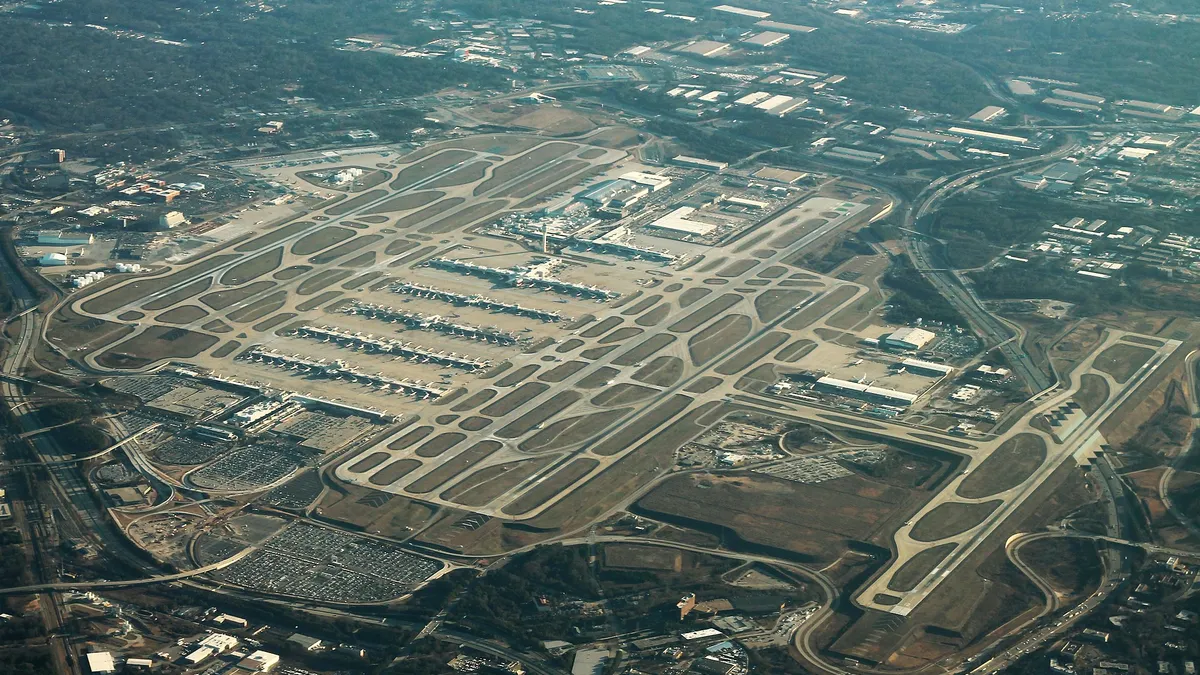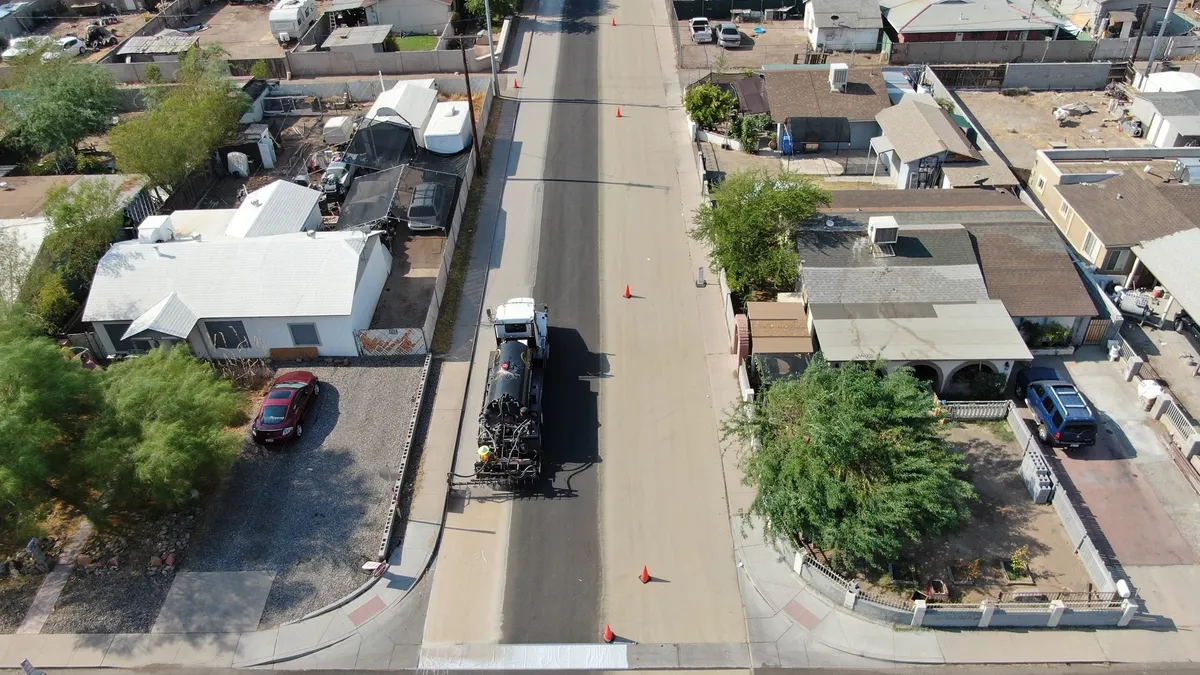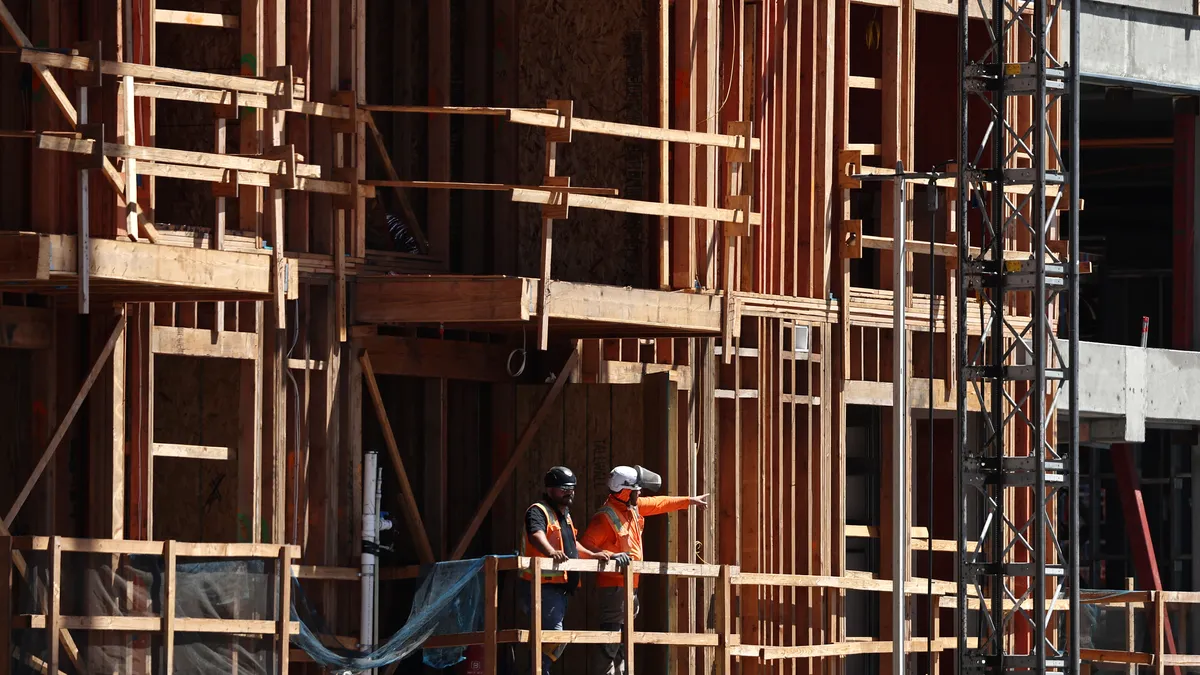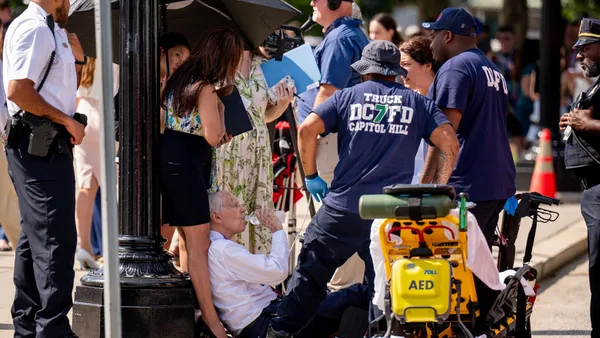Dive Brief:
- A terminal at Hartsfield-Jackson Atlanta International Airport is the first in the United States to fully implement facial recognition technology for every step of the passenger experience from checking in to boarding a flight. The technology was developed and installed by Delta Airlines and U.S. Customs and Border Protection (CBP).
- To use the facial recognition technology, passengers will have to enter their passport number online and have their picture taken at the airport. From there, a facial scan will be used to check in and drop off bags, and will be used for identification at a security checkpoint, flight boarding and for CBP processing for international travelers.
- Some other airports have already started using facial scans for flight boarding; according to Delta, that option is saving about two seconds per passenger, or nine minutes for boarding a wide body aircraft.
Dive Insight:
Delta says it will expand the full terminal experience to its hub in Detroit in 2019, and similar equipment has been piloted by other airlines around the country (it’s also being expanded at some airports in China and Japan). The Mineta San Jose International Airport in California, in partnership with CBP, is also using it to process arriving international travelers. In an interview with CNN, CBP Deputy Assistant Commissioner John Wagner said the agency aims to have facial recognition boarding at all U.S. airports with international flights within 3 or 4 years.
The mission is simple: smooth the boarding process and save passengers from needing to present an ID. In a statement, Delta COO Gil West said “we’re giving customers the option of moving through the airport with one less thing to worry about, while empowering our employees with more time for meaningful interactions with customers.”
For the Atlanta airport, which sees an estimated 275,000 passengers a day, any added efficiency is a win. The airport has been looking at installing an innovation lab to use the facility’s resources — and traffic — to test new ideas around mobility, communication and efficiency.
The technology also carries concerns about discriminatory practices and data security. CBP says that images of U.S. citizens are deleted shortly after boarding, while images of departing non-citizens are stored for up to 14 days. Photos of arriving non-citizens can be stored in CBP’s system for 75 years; Delta told CNN it has no access to the database.
Accuracy is currently around 98% (according to a report by KTVU, the San Jose program had a match success rate of 99%), and accuracy industrywide has been improving for non-white passengers. With facial recognition technology controversially being adopted by police departments and U.S. Department of Homeland Security, more exposure at airports could help the public grow more familiar, and help work out more kinks.










